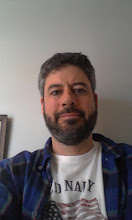The fathers of modern computing always had Laplace in mind, and the history of computing and the history of forecasting were intermingled ever since John von Neumann designed his first machines at the Institute for Advanced Study in Princeton, New Jersey, in the 1950s. Von Neumann recognized that weather modeling could be an ideal task for a computer.
There was always one small compromise, so small that working scientists usually forgot it was there, lurking in a corner of their philosophies like an unpaid bill. Measurements could never be perfect. Scientists marching under Newton's banner actually waved another flag that said something like this: Given an approximate knowledge of a system's initial conditions and an understanding of natural law, one can calculate the approximate behavior of the system. This assumption lay at the philosophical heart of science.
(Gleick: pp. 14-15)
The keyword here is approximate, and it is important not to forget it for an excess of arrogance can easily lead down the wrong path, as we learnt too often during the twentieth century. Well, chaos theory stresses precisely this, the limitations of our own knowledge, the precarity of what we know.

No hay comentarios:
Publicar un comentario